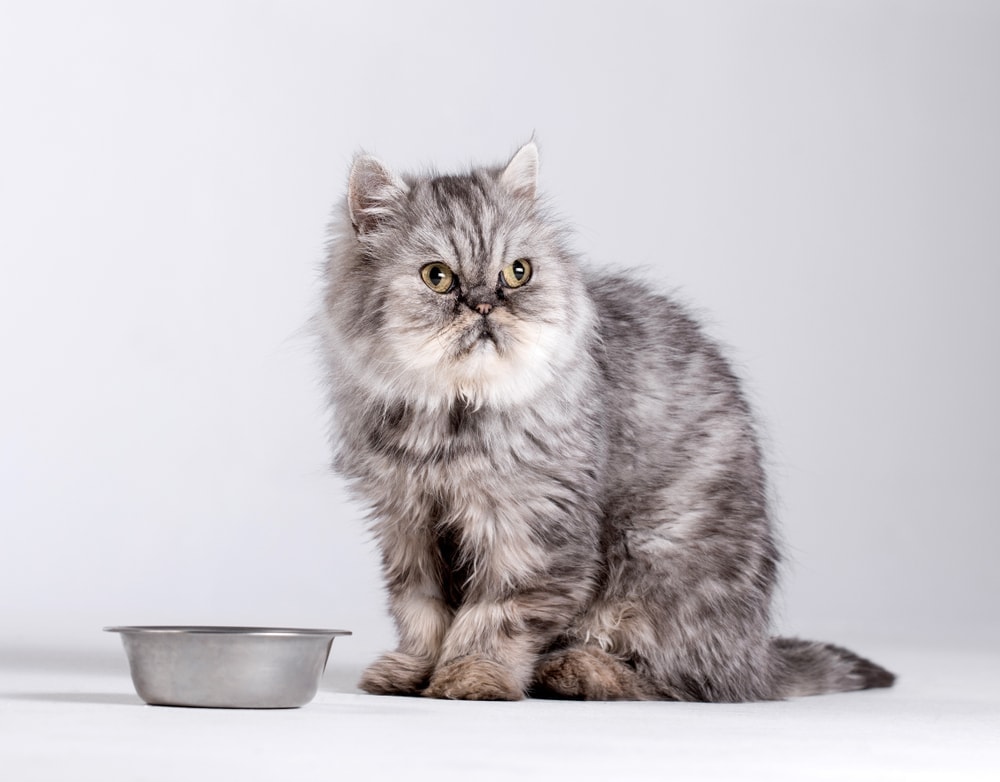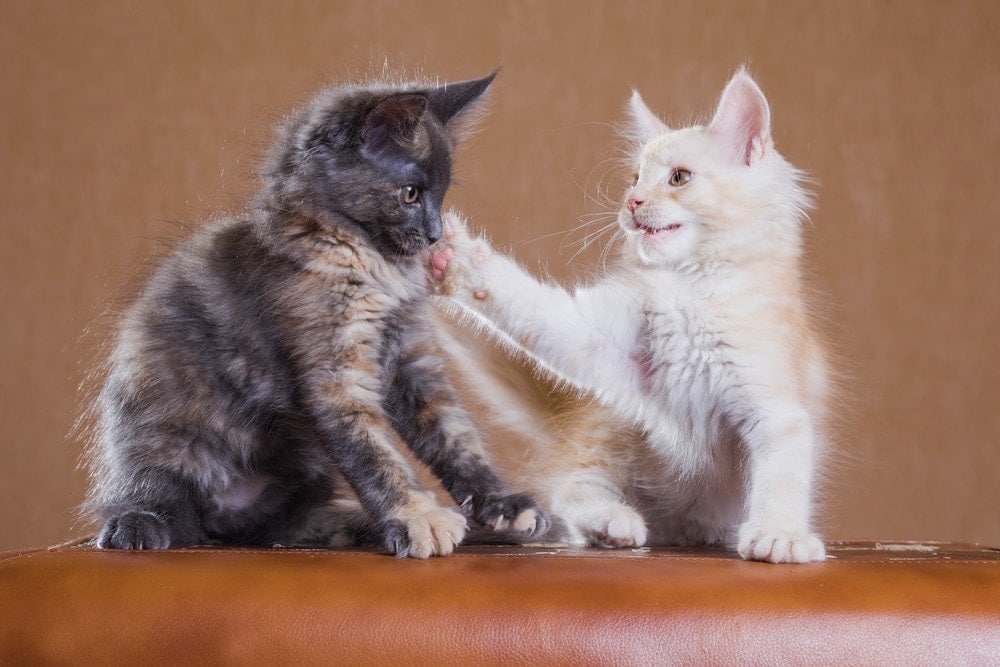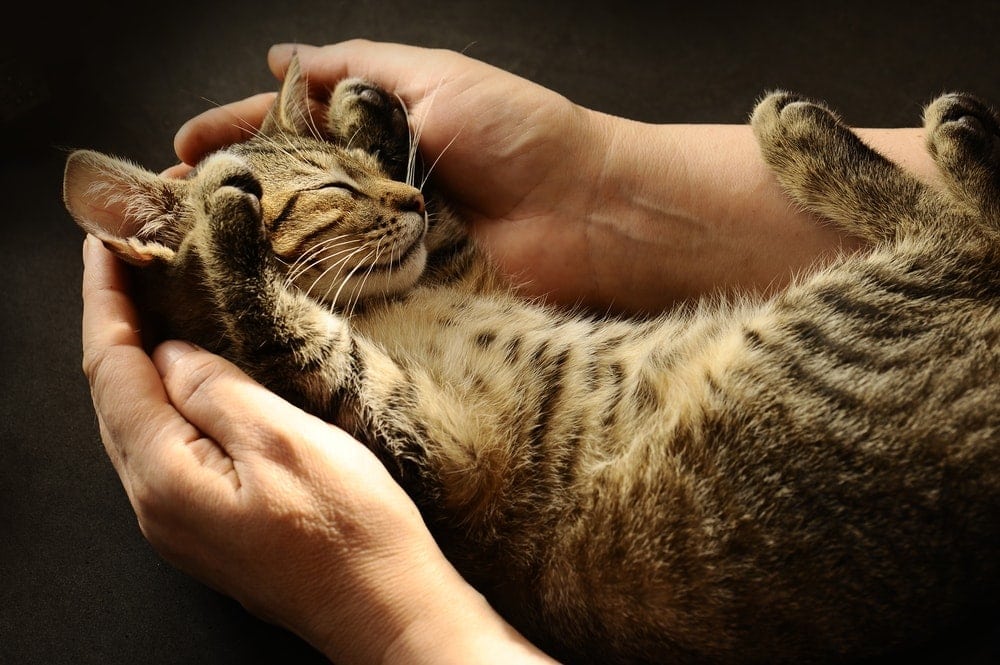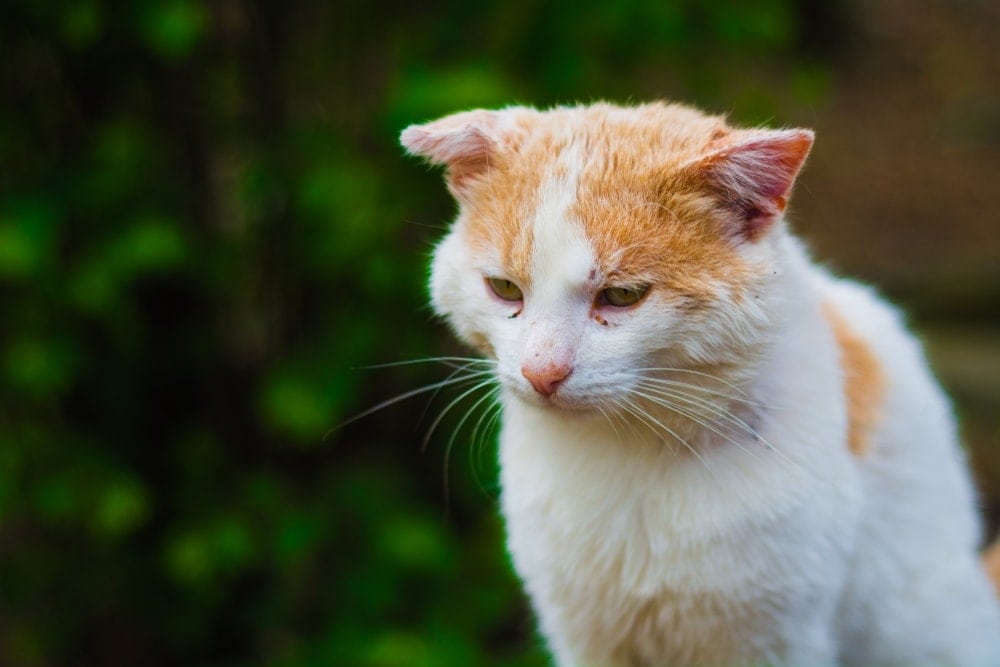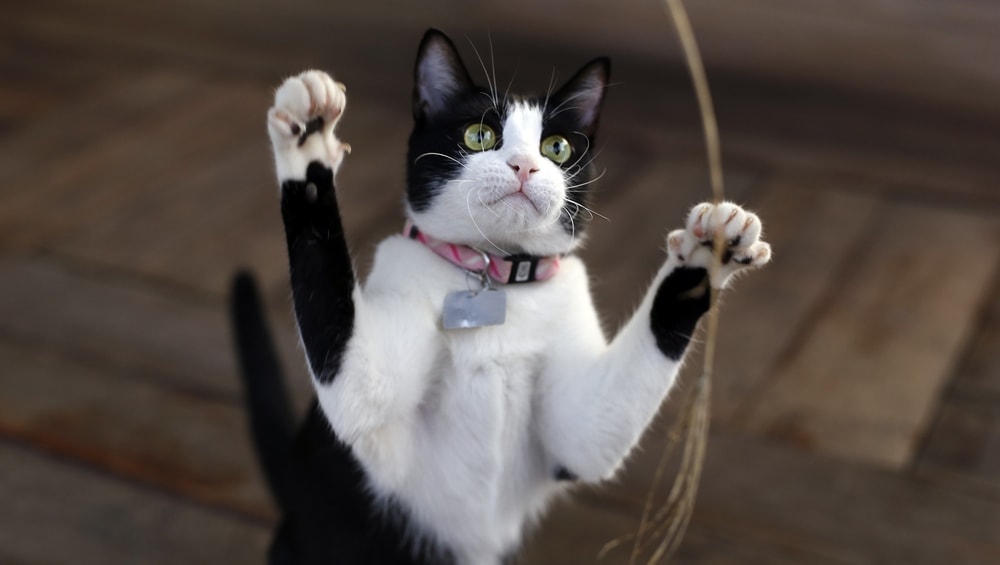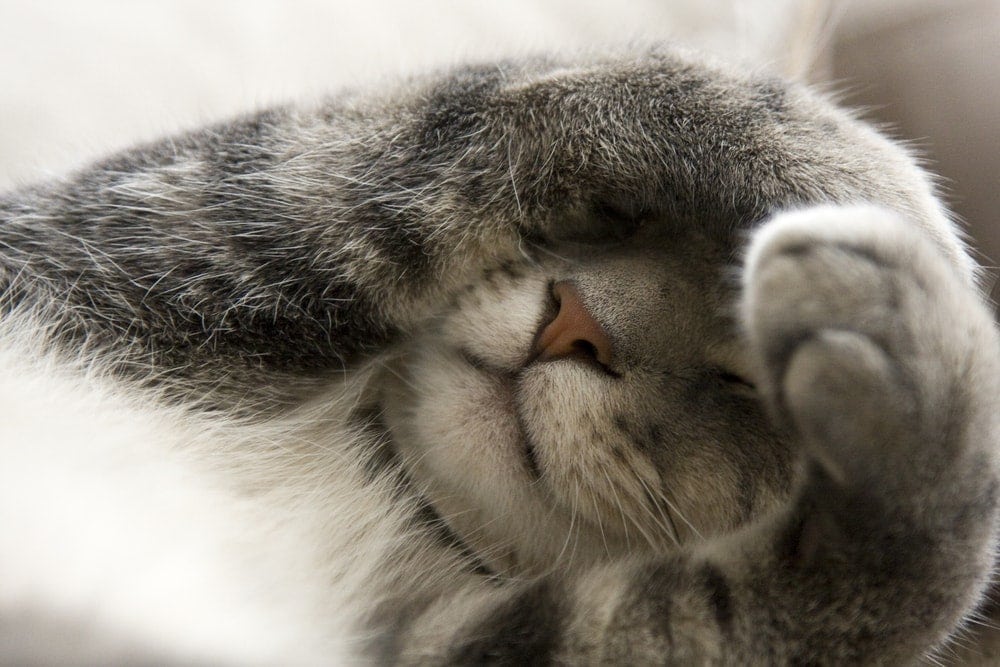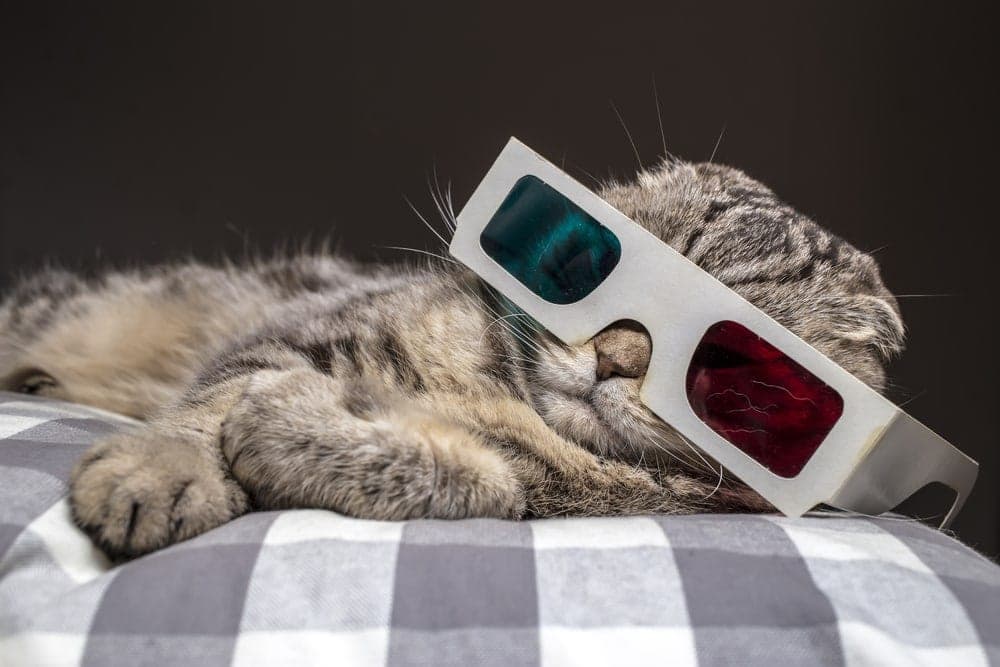If your cat is not eating at all, there is definitely something wrong.
There are multiple explanations for this, some of which are more serious than others. This is not the kind of thing that you should ignore.
A lack of appetite is often a sign of serious illness.
Common Reasons for Cats Not Eating
1. Parasites
The first possible explanation for your cat’s lack of appetite is that it has parasites. There are many different types of parasites that can cause this, including roundworms. This is a fairly common problem among cats that spend a significant amount of time outdoors.
Some of the other signs of parasites in cats include vomiting, diarrhea, rough coat, and rapid weight loss. If the parasites have made their way into your cat’s intestines, they can do a lot of damage to your pet’s body. It is important that you look out for these symptoms, especially if you let your cat outside some of the time.
2. Kidney Disease
A cat may not want to eat anything if it is suffering from kidney disease. This also typically presents with nausea and vomiting. The severe gastrointestinal upset may cause your pet to avoid eating altogether.
3. Gastrointestinal Problems
There are many different gastrointestinal problems that can affect cats. Sometimes it is simply inflammation of the GI tract, which can be quite serious. This is usually accompanied by nausea, vomiting and diarrhea.
Constipating is another common gastrointestinal problem among cats that can lead to not eating. If they are already backed up, they might avoid eating anything else until they have defecated. If it has been a while since they pooped, this could be the reason.
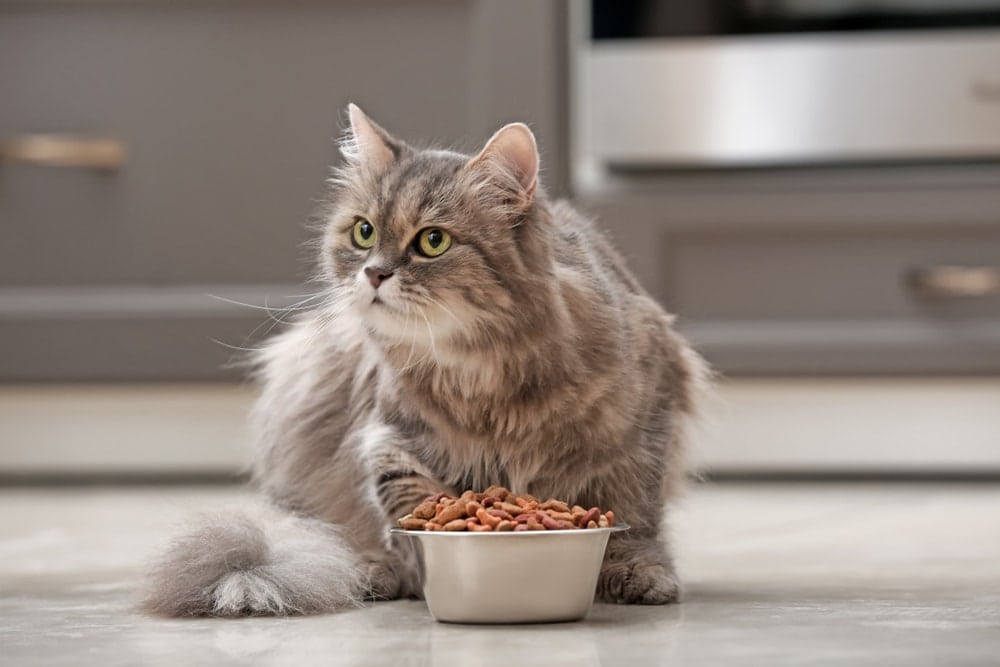
4. Dental Issues
Your cat may also have gingivitis or some other oral health issue. If one of their teeth is bothering them, they might avoid eating because it hurts. Check your cat’s gums to make sure there is no redness or swelling.
5. Stress
It is also possible that your cat is neglecting its food because of stress. This can be triggered by many things, such as a sudden and major change in their routine. If you have just moved into a new house or apartment with them, they could still be adjusting to their new surroundings.
6. Upper Respiratory Infection
If your cat has an upper respiratory infection, their nasal passages are probably clogged. This means that they cannot smell their food, which could cause them to not eat it. These infections are fairly common in cats, and they often clear up without any medication.
7. They Don’t Like Their Food
Cats have a reputation for being incredibly finicky creatures. If you have recently switched your cat to a new food, it is possible that they just don’t like it. These animals will go a surprising amount of time without eating if they don’t like what it put in front of them.
You may have to spend some time looking for the right food to give your cat before it will start eating. You can check out this article to find the right food for your cat. This could help you to find a food that your pet will actually enjoy.
The problem could be the flavor, texture or even shape of the food. It is important to make sure the food hasn’t spoiled. A quick sniff is all it takes for a cat to know if their food is no longer fresh.
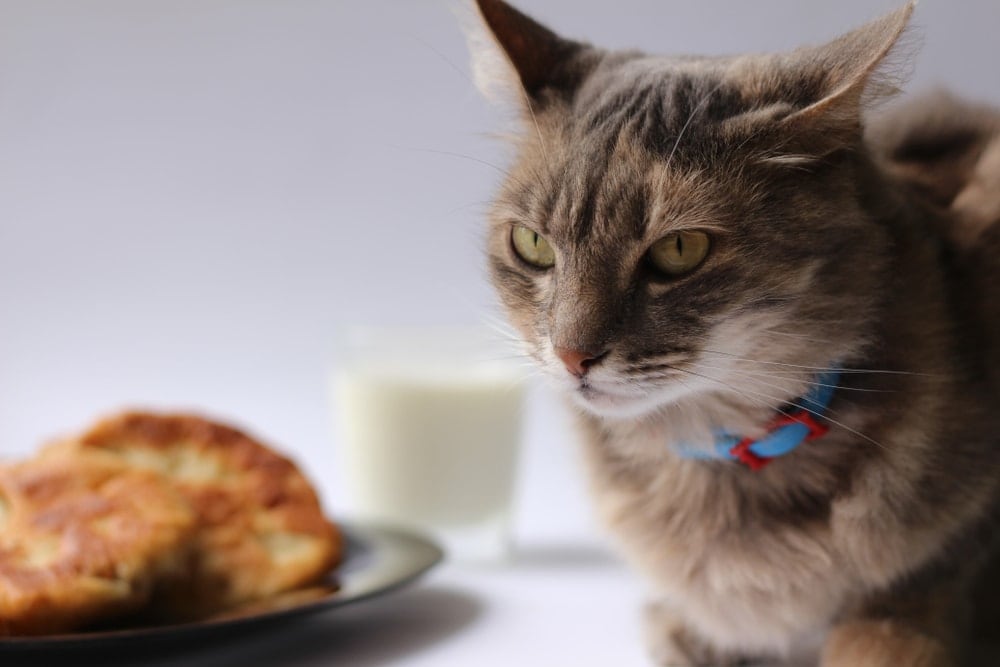
Getting Your Cat to Start Eating Again
There are a few things that you can do to get your cat to start eating again. You might have to experiment with some different methods, but one of these should work for your feline friend.
- Don’t force your cat to eat: You absolutely do not want to force your cat to eat. This isn’t going to help you make any progress whatsoever. If anything, it will just make your cat like you a little less.
- Spice up their food: You can also try putting something extra in their food to encourage them to eat. This could be anything from a little tuna to a piece of fruit.
- Heat it up: Heating up your cat’s food can also entice it to dig in. This will enhance the strength of the food’s aroma.
- Give them some B12: Giving your cat a little vitamin B12 could increase its appetite.
When to See Your Veterinarian
If your cat does not eat its food for more than a couple of days, you should really see your vet. They may run some tests on your cat to determine the cause of this behavior. Be prepared to answer some questions about your pet’s recent behavior. This will make it easier for them to diagnose the problem.
You also want to take your cat to the vet if you notice any vomiting, diarrhea, lethargy, or constipation. When accompanied by a lack of appetite, these symptoms can be a sign of a serious health problem. The longer you wait to get your cat looked at, the more dire the situation could become.
Conclusion
- Some cats stop eating due to parasites such as roundworms, which live in their host’s intestinal tracts.
- A gastrointestinal issue like constipation or simple inflammation of the GI tract can also lead to a complete lack of appetite.
- Your cat could be refusing to eat because they are stressed due to some sudden change in their routine.
- An upper respiratory infection could cause your cat to stop eating because their nasal passages are blocked.
- If you have recently given your cat a new food, they might not like it. Try giving them something else to see if they start eating again.
- You should never try to force your cat to eat, as this won’t do anything but annoy them.
- Try putting a special treat like tuna or a piece of fruit in their food to encourage them to eat.
- An infusion of vitamin B12 is another good way to stimulate a cat’s appetite.
